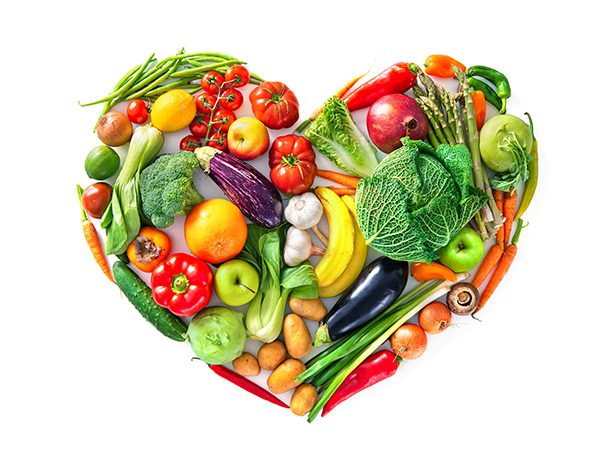 Parler
Parler Gab
Gab
- Pumpkin powers immunity through vitamins A, C, E and immune-modulating polysaccharides.
- Its polysaccharides regulate blood sugar, offering hope for diabetes management.
- Carotenoids like beta-carotene protect eyesight and reduce chronic disease risks.
- Antioxidant compounds combat inflammation and support detoxification.
- Incorporating pumpkin into daily meals aids digestion, weight loss and mental health.
Nutritional powerhouse for immunity and chronic disease prevention
Pumpkin’s synergistic blend of vitamins and antioxidants makes it a standout for immune support. Vitamin A strengthens skin and mucous membranes, forming a barrier against pathogens, while vitamin C stimulates white blood cell production and enhances wound healing. Zinc and selenium further bolster immunity by regulating inflammation and oxidative damage. The fruit’s polysaccharides — complex carbohydrates isolated in TCM and Western studies — prove particularly potent. They modulate immune activity, reduce hyper-inflammatory responses and exhibit antiviral properties. A recent review noted that pumpkin’s functional constituents, including polyphenols and carotenoids, may help repair immune systems weakened during the pandemic by combating viral pathogens and reducing inflammation. Dr. Yang Jingduan of New York’s Northern Medical Center adds that pumpkin’s zinc content, critical for neurotransmitter synthesis and brain function, could also mitigate depression, a rising concern post-COVID.Metabolic and physical health gains from the inside out
Pumpkin’s benefits extend to metabolic health. Its high fiber content promotes satiety and improves gut microbiota, aiding in weight management. For those with diabetes, pumpkin’s polysaccharides reduce blood sugar spikes by enhancing insulin sensitivity and regulating lipid metabolism. Studies in diabetic mice showed reductions in oxidative stress markers, underscoring its potential as an adjunct to traditional treatments. Eye and skin health also benefit from pumpkin’s carotenoids. Beta-carotene converts to vitamin A, sharpening vision, while lutein and zeaxanthin shield retinas from UV damage. Meanwhile, vitamin C fuels collagen synthesis, maintaining skin elasticity. These traits have led dermatologists and optometrists to champion pumpkin as a stealth anti-aging and protective agent in a digital age where screen time and UV exposure are unavoidable.Pumpkin’s role in holistic healing
TCM practitioners advocate pumpkin’s broader healing properties, such as easing prostate enlargement and stomach ulcers. Pumpkin seeds, when ground and consumed, may inhibit prostate cell proliferation, while its mucilaginous fibers create a protective barrier in the gastrointestinal tract against NSAID-related ulcers. Hu Naiwen notes that modern work lifestyles — with erratic schedules and stress — heighten risks of ulcers and digestive issues, making pumpkin a “gentle healer” for busy populations. The vegetable’s “cooling” TCM properties are also vital in climate-conscious diets. Summer heat and humidity can disrupt digestion, but pumpkin’s moisture and diuretic effects flush toxins and balance “dampness,” a TCM concept linked to bloating and lethargy. Recipes like pumpkin soy milk and millet porridge merge TCM principles with convenience, offering accessible ways to incorporate its benefits.Golden opportunity for health
As the world reckons with the lingering effects of the pandemic and modern lifestyle diseases, pumpkin’s multifaceted benefits position it as a foundational food for holistic well-being. Its ability to address immunity, chronic inflammation, mental health and metabolic disorders — from ancient TCM perspectives to cutting-edge biochemistry — cements it as more than just a seasonal treat. For the forward-thinking, pumpkin isn’t just on the plate; it’s a nutrient-packed ally in the pursuit of longevity. Sources for this article include: TheEpochTimes.com PubMed.com StVincents.org“Foods That Heal” by Bernard Jensen: A nutritional guide to wellness
By Belle Carter // Share
Ancient chia seeds reduce modern heart disease risk
By News Editors // Share
Julie Motz explores the intersection between energy healing and conventional medicine
By Kevin Hughes // Share
Earth to spin faster this summer; three days will be shorter than normal
By Cassie B. // Share
Governments continue to obscure COVID-19 vaccine data amid rising concerns over excess deaths
By patricklewis // Share
Tech giant Microsoft backs EXTINCTION with its support of carbon capture programs
By ramontomeydw // Share
Germany to resume arms exports to Israel despite repeated ceasefire violations
By isabelle // Share










